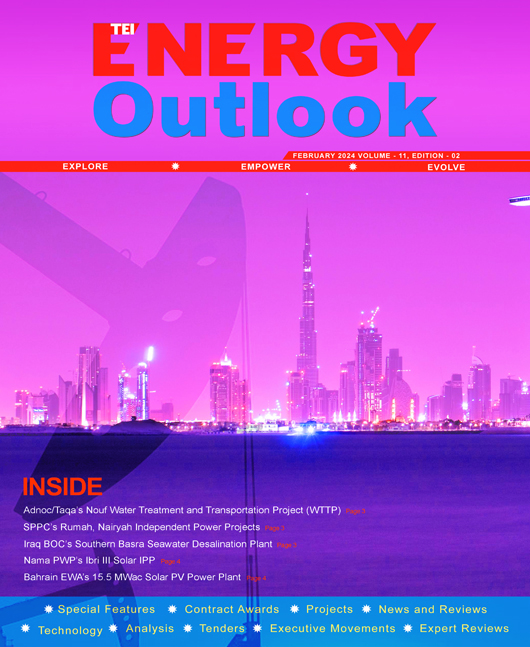
Middle East’s Resilient Growth
The Middle East countries is forecast to register improved growth in 2024, due to broadly stabilizing oil production following output cuts in 2023, moderation of inflation, supportive fiscal policies, and momentum in the non-oil economy.
The outlook for the GCC region in 2024 is more optimistic in comparison to the rest of the world. The GCC economies will grow at a faster pace in 2024, averaging 3.5% this year, much faster than 0.8% in 2023.
The 2023 awards value in the Middle East and North Africa region surged well beyond the average value of annual awards in the past five years to reach $254 billion. The heightened activity was driven by extraordinary levels of contract awards in both the Saudi Arabian and UAE projects markets, which saw $95bn and $79.5bn in awards, respectively, across all sectors. All the GCC countries witnessed at least double-digit y-o-y growth in their aggregate value of contracts awarded during the year.
The GCC market has a strong pipeline of upcoming regional projects valued at $270bn.
Top scheme to watch in Saudi Arabia includes $1.25 trillion gigaprojects. Other big projects include the development of the Jafurah onshore unconventional gas field and expanding Aramco’s Master Gas System, the estimated $7bn plus Zuluf upstream scheme, and the Manifa offshore oil and gas field.
Aramco, the national oil company of Saudi Arabia, has a significant pipeline of planned projects, including petrochemicals projects estimated to be worth up to $200bn. Aramco, and its petrochemicals producing subsidiary Saudi Basic Industries Corporation (Sabic), plan to establish 10-11 large mixed-feed crackers by 2030, as part of the global liquids-to-chemicals programme, which is projected to see investments of up to $100bn and aims to convert 4 million bpd of oil production into high-value petrochemicals and chemical feedstocks.
With more than $545bn worth of projects planned or underway, the UAE is the second largest projects market in the region after Saudi Arabia. Abu Dhabi National Oil Company (Adnoc) will be a key project sponsor with a 2021–25 capex budget of $122bn. Top projects include the $7bn expansion project at Abu Dhabi’s Upper Zakum offshore oil field and the $4.5bn Ruwais LNG Terminal project.
Qatar’s spending is focussed on oil, gas and utilities schemes. The main upcoming projects are Qapco's $1.5bn PDH / PP Plant and Kahramaa's $3bn Facility E IWPP.
The oil and gas producers in the region are investing heavily in building upstream and downstream production potential. Saudi Arabia and Kuwait target first gas from the $5bn offshore Dorra gas field by 2029. Iraq Oil Ministry’s $3bn Artawi oil field development to ramp up production 210,000 bpd within four years. Iraq’s National Investment Commission (NIC) announced three investment opportunities in the oil refining sector worth nearly $25bn.
The power generation projects remain among the highest priorities in the region and will continue to see large-scale investments in the years ahead.
Saudi Arabia has $45bn worth of power generation projects in the pre-execution phase, in addition to the 17.6 gigawatts of nuclear capacity with a total value of $40bn. Kuwait relaunches tenders for Az-Zour North IWPP and Al-Khairan IWPP. The projects, due to be completed in 2027, will have a combined production capacity of 4.5 GW and 153 MIGD. The projects’ estimated cost is $6bn.
The region is showing strong commitment in clean energy projects including sources like solar and low-environmental-impact hydrocarbon. According to Strategy&, part of the PwC network, the Middle East has the potential to witness an economic growth valued at $3 trillion. Saudi Arabia is making progress on the development of the $8.4bn green hydrogen plant in NEOM. Oman aims to produce up to 8.5 million tons of renewable hydrogen a year by 2050 with around $140bn in investment.
The momentum in the region’s projects market is expected to continue this year with abundant new opportunities to bid in.
Editor